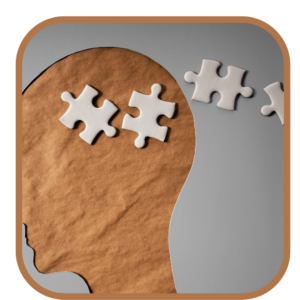In our life story, memory takes the leading role, bringing back moments, names, and experiences. But sometimes, our memory starts missing a line or two, like forgetting where we put our keys or someone’s name. It’s like small hiccups in a play. Yet, when these forgetful moments happen more often, we wonder, “Is there a bigger problem here?” Join us as we explore when these minor memory lapses become something to worry about.
Are these short memory problems starting to affect your quality of life?
- Remember appointments, recent events and conversations
- Finding the right vocabulary during conversation
- Focusing and managing tasks or discussions.
- Monitoring properties… (like remembering where you put your coffee mug in the morning)!
- After planning and deciding.
- Complex transactions such as payments and bills
If you answered “YES” to any of these questions please have this important read below, as we delve into the realm of memory issues and how to address them effectively.
Forgetting things from time to time is ordinary. Particularly when you hit your 60s and 70s — looking for the right word… shuffling your shopping list… losing your vehicle keys… this multitude of minutes are ordinary… until they’re NOT!
Memories are the cornerstone of our lives, allowing us to recall favorite moments, navigate daily routines, and maintain our identity. But when memory problems start creeping into our lives, they can cast a shadow over us and our ability to function on a daily basis.
Related Article: Short term memory loss may be affected by Alzheimer’s
Memory: From Normal aging to associated damage
It is important to note that changes in memory are a natural part of aging. Minor forgetfulness, such as misplacing keys or temporarily entering a name, is generally considered normal. But if these mistakes persist and start interrupting your daily activities, it can be frustrating.
Navigating the maze of memory problems
Assess the impact: Consider how memory problems affect your daily life. Are you missing appointments, struggling with conversations, or feeling like it’s hard to get things done? Understanding the extent of the impact is the first step in finding a solution.
Identify potential causes
Things like stress, sleep deprivation, medical conditions, medications, and even emotional well-being can be caused by memory problems. Understanding the causes can point you in different directions effectively.
Lifestyle changes
Simple lifestyle changes can often make a big difference. Prioritize good sleep, manage stress through relaxation techniques, and eat a balanced diet rich in nutrients to promote brain growth.
Mental stimulation
Engage your brain in challenging activities. Solve puzzles, read regularly, learn new skills, or pick up an instrument to stimulate mental activity.
Social Connections
Maintaining social connections not only enriches the soul, but is also beneficial for memory. Enjoyable conversations and interactions help sharpen your emotional powers.
Professional guidance
If memory problems persist, seek professional help. Consult a health care provider who can assess your condition, make necessary assessments, and recommend appropriate interventions.
Empowering the self: Strategies for better memory
- Mindfulness and meditation: These practices can increase concentration and reduce stress, and support memory functions.
- Exercise: Regular physical activity improves blood flow to the brain, which supports mental health.
- Brain training apps: Many apps offer mental exercises designed to improve memory and mental agility.
- Nutritious diet: High levels of antioxidants, omega-3 fatty acids and vitamins promote brain health.
- Process and Organization: Establishing a consistent routine and using organizational tools can reduce challenges on memory.
In Conclusion
Missing little things may be the norm, but when it starts to undermine your ability to function and enjoy life, it’s time to do something about it. By assessing impact, identifying causes, making lifestyle changes, professional guidance, and memory enhancement techniques, you can regain control of your memory and preserve quality of life Remember that your memory is an asset valuable and ensure that you continue to live a full and meaningful life.
Book A Free Consultation and Home Assessment
For Home health and home care services, get in touch with us today!
Like and follow us on Facebook, Instagram & Twitter.
Subscribe to our YouTube Channel





